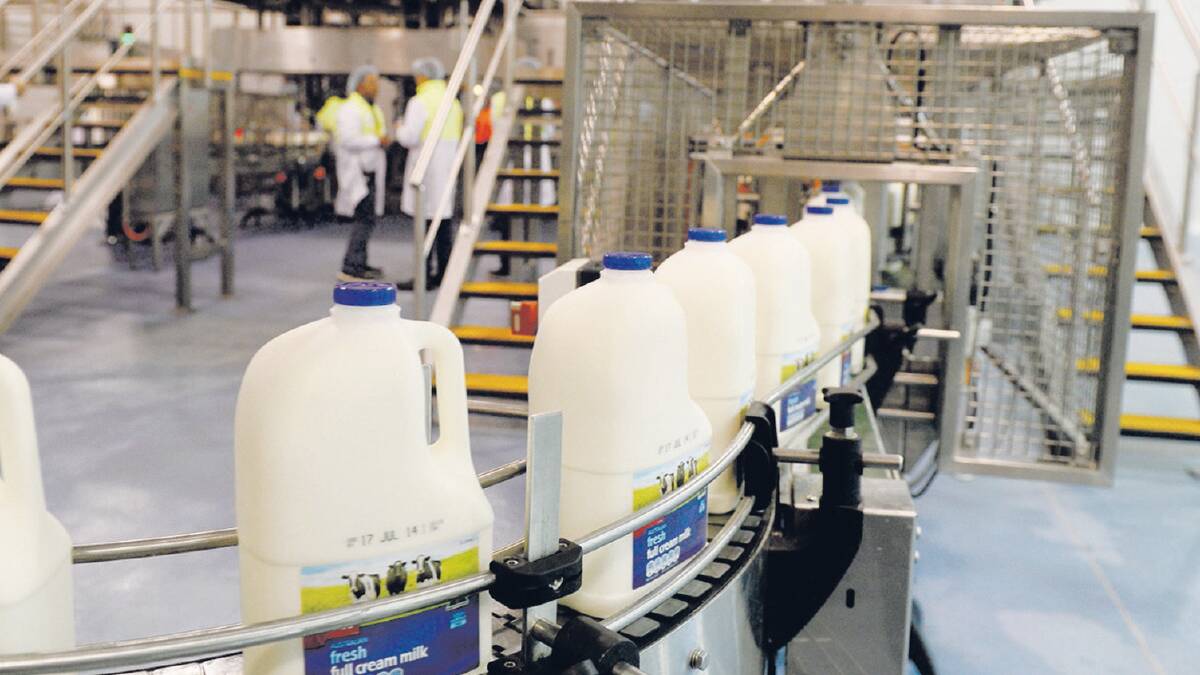
Saputo Dairy Australia is finalising agreements to process milk for customers other than Coles through its two big liquid milk processing facilities in Melbourne and Sydney.
Saputo president and chief operating officer Kai Bockmann, speaking in Canada after the company's annual meeting and first-quarter results announcement, said the renegotiation of the contract with Coles had opened the way for it to process more milk through the Laverton North and Erskine Park plants that were built by Murray Goulburn five years ago specifically to fill that 10-year Coles contract.
"Those two assets were specifically built for the Coles business, but we were not happy with the terms and conditions under that contract, so we're looking to foster collaborative approach in terms of how we could work together and we found resolution just recently," Mr Bockmann said.
"And that has allowed us to look at processing more milk through those two assets.
"So we are in the midst of finalising some agreements to bring more milk through both facilities, which would pretty much get us to close to maximum capacity for both sides."
Related reading:
The third-party processing of milk is a key part of Saputo's strategy to build more profitability into its Australian business as it grapples with reduced milk supply.
Mr Bockmann said toll-processing arrangements like that it had negotiated with Coles where it charged to manufacture someone else's product were not necessarily a lower margin business than processing their own brands.
"So let's say, it costs you 10 cents to manufacture an item for someone, you would charge them 15 cents," he said.
"So 10 cents would be the cost and then you would add a profit to that service, so that, that would be the toll fee that you would generate."
Saputo chair and chief executive officer Lino Saputo said this generated two benefits.
"Number one, you generate a profit as you are tolling for someone else," he said.
"And the second thing, don't forget is, especially in Australia, helps us reduce the overhead absorption.
"So it makes all the other categories of products that we are processing in that facility, that much more profitable."
Mr Saputo said despite the fact overall milk production was declining in Australia, Saputo was still aiming to hit its targets for milk processing.
This included milk from its suppliers and buying milk from brokers.
But Saputo also saw an opportunity in the excess processing capacity in Australia.
"There is a lot of stainless steel in the system, not all the stainless steel is efficient or effective," Mr Saputo said.
"And so through our discussions with some other players in the dairy space, we are offering them some compelling reasons for them to shutter their plants, move their milk to us and we can co-pack much cheaper with a higher quality than they can do if they would keep that plant open.
"And that negotiation with a number of different players has been quite successful.
"So our target for capacity utilisation at this stage has not changed."
Mr Saputo said the company was expecting greater competition for milk, which would put downward pressure on margins.
Mr Bockmann described a lot of competitors as being "quite aggressive" in chasing supply, including new smaller players who were entering the market.
Lion deal
Mr Saputo said part of its strategy to mitigate this was the channel raw milk into higher margin products - which was where its proposed acquisition of the Lion specialty cheese business fitted.
"Our desire is to be a specialty driver of dairy goods all over the world," he said.
"And this acquisition of Lion specialty business fits right into our strategy."
Mr Saputo said he was confident the company could work through the competitive issues around the acquisition raised by the Australian Competition and Consumer Commission last week.
Profit and revenue up
Saputo reported an increase in revenue and profit for the first quarter.
Revenue was up 12.3 per cent, chiefly on the back of increased sales from recent acquisitions, including the UK Dairy Crest business.
Profit was up 16.4pc to $CAN358 million.
Mr Saputo said the company had come out of two difficult years.
"There is a better balance between supply and demand on the global market, so that definitely is helping prices as we rollout dairy goods into the international market as well as domestically, he said.
But he did sound a note of warning about trade tensions on the US front - specifically with China and Mexico.
"Those create a lot of instability for us and difficult for us to predict where and how those things will end," he said.
Mr Bockmann said the company's Australian operation had enabled it to mitigate some of the risk from the US-China trade war.
"Some of the markets that are traditionally serviced by the US, from an export standpoint, can be serviced from the Australian platform," he said.
This story first appeared on Australian Dairyfarmer


